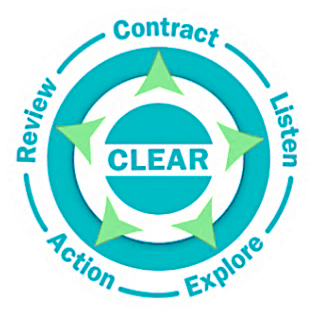My Approach
Person-centred. In your corner. Together—navigating the ever-changing landscape of life.
A Developmental Coaching Approach
I take a developmental coaching approach to my coaching practice. At its core, developmental coaching focuses on life transitions and lifespan development. It’s been said that developmental coaching, at its essence, is akin to a compass for individuals navigating the ever-changing landscape of life.
My approach can also be described as a person-centred approach. It is in some ways at the very heart of coaching.
The following quote from Jonathan Passmore resonates with me:
“The essential tool for the coach, is thus the quality of the relationship, ensuring clients experience the warmth and empathy offered by the coach. The focus is on the relationship, and how the coach uses listening, and displays empathy toward their client.”
Passmore, 2020
Dimensions of My Coaching Approach
Establishing Trust, Rapport, and Safety
Establishing trust and safety in a coaching relationship is paramount to me. The ability to demonstrate presence is foundational to my coaching approach. I believe that one’s ability to demonstrate presence is an essential quality to advance personal and professional potential. Clients and peers have oftentimes mentioned that I bring a peaceful presence to a coaching session.
Using the CLEAR Coaching Model
Establishing trust and safety in a coaching relationship is paramount to me. The ability to demonstrate presence is foundational to my coaching approach. I believe that one’s ability to demonstrate presence is an essential quality to advance personal and professional potential. Clients and peers have oftentimes mentioned that I bring a peaceful presence to a coaching session.

Valuing Reflective Practice and Writing
I believe that the cornerstone of my coaching approach is connected with my passion for learning, reflection, and self-development. I believe that reflective practice is central to learning—for both the client and the coach. I do believe that writing is an important process that activates our learning. Where appropriate, I will design different reflective practice tools in my coaching practice to support my clients in between coaching sessions. I may customize a reflective tool (form, survey, or questionnaire) to meet the needs of the client.
Supporting the Client’s Well-Being and Well-Doing
I support my clients to make practical connections between their well-being and well-doing. Where appropriate, self-generative practices and activities are included, such as self-observation, building somatic awareness, and developing compassion for self and others.
Supporting Social Emotional Development
Frameworks that support social emotional skill development will be incorporated in sessions, as appropriate. Research has shown that there is a relationship between a leader’s success and his/her EI.
Developing empathy and emotional intelligence (EI) supports the development of inspirational leaders, improves relationship management, and teamwork. However, this work takes courage.
Boyatzis and McKee, 2006
The emotional intelligence (AKA emotional quotient) of senior leaders is a success determinant.
Leadership Effectiveness: Building Emotional Intelligence
Of all the people we’ve studied at work, we’ve found that 90% of top performers are also high in emotional intelligence. On the flip side, just 20% of bottom performers are high in emotional intelligence.
Travis Bradberry, Daniel Goleman, Forbes Magazine
Evoking Awareness through Frameworks and Models
I continue research and collect additional resources, models and/or frameworks that can serve to support clients. At times, it may be appropriate to share an article, framework, or model in between sessions.
187-2869 Bloor Street West
Toronto, Ontario M8X 1B3Canada
All Rights Reserved | Strong with Shelley | Heartspeak
Subscribe
to receive updates from Shelley.
Tip: Quickly sign up with the form below, or manage all subscriptions and your info with our complete sign up form.
Footer - Subscribe
Thank you for subscribing. We'll be in touch soon.
There was an error subscribing. Please reload the page and try again.

